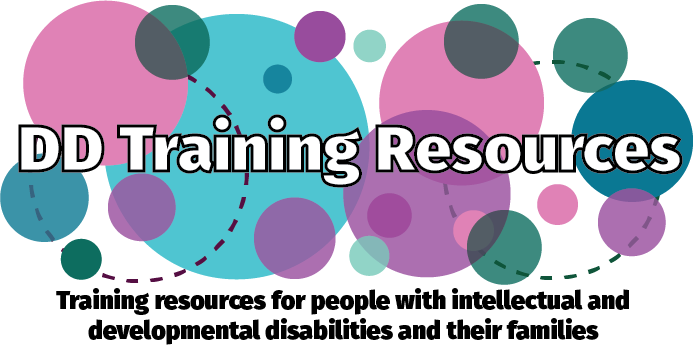New online training focused on needs of people with intellectual and developmental disabilities

The New York State Office for the Aging (NYSOFA), in partnership with the New York State Development Disabilities Planning Council (DDPC), and Boston University School of Social Work’s Center for Aging and Disability Education and Research (CADER), have announced a new online course designed to help the aging network workforce better understand what intellectual and developmental disabilities (IDDs) are and how they impact a person’s life from birth to older age. The disability awareness training has been added to NYSOFA’s first-in-the-nation online training academy, offered by BU CADER, for aging services professionals in New York State as part of a $300,000 grant from DDPC.
The online training academy currently offers more than 20 certifications and trainings from BU CADER for aging services staff statewide, enabling them to enhance their professional qualifications and deepen their expertise to further support the needs of older New Yorkers.
The disability awareness training course will expand the training academy’s offerings by focusing on understanding the needs and desires of individuals with intellectual or developmental disabilities, including how IDDs are manifested (physical, emotional, mental, and social), and how they may or not impair a person’s ability to live independently while enjoying all of society’s benefits. The aging services network can provide guidance, support, and advocacy for people with IDDs and those who care for them. The course will help aging professionals gain knowledge, develop skills, and promote values of inclusivity so that those with IDDs and their caregivers are not viewed as a separate or different population from the older people they typically serve. This course will also offer continuing education credit for social workers in New York State.
Over the past decade, New York State has experienced an unprecedented increase in its older population. There are currently more than 4.6 million adults aged 60 and over in the state; that number is expected to increase dramatically over the next 20 years. Studies have indicated that the life expectancy for adults with IDD has also grown due to medical advances and improved living conditions in recent decades. The number of adults in the U.S. with IDD age 60 years and older is projected to grow to 1.2 million by 2030.
Rapid changes in health care and long-term care have also propelled the need to address the challenges faced by a growing number of older adults needing assistance to live independently. As New York State works on payment reforms under value-based payments; continues to rebalance long-term care; and builds age friendly communities focused on addressing social determinants of health, ensuring that the network of aging services professionals have access to standardized, skills-based training is critically important in addressing older adults’ diverse needs while also demonstrating to payers and the general public that the aging services workforce is highly trained, skilled, and certified.
In 2016, New York State became the first state in the nation to offer validated, skills-based, online certificate programs and training for care managers and other practitioners serving older adults and people with disabilities. Developed in partnership with the Association on Aging in New York and BU CADER, the standards for the Care Management Certification Program are among the highest in the nation. Now in its sixth year, the program is designed to address the knowledge, skills, and values essential for effective care management practice and to provide a statewide, standardized training program. To date, upwards of 900 care managers have completed this mandatory program to enhance the qualifications for professional care managers who serve older adults across New York State.
Provided information





